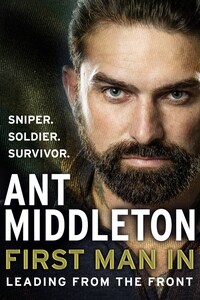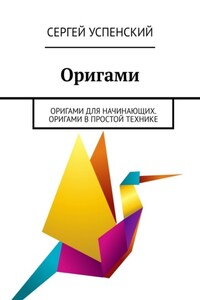HarperCollinsPublishers
1 London Bridge Street
London SE1 9GF
www.harpercollins.co.uk
First published by HarperCollinsPublishers 2018
FIRST EDITION
© Anthony Middleton 2018
Cover design by Claire Ward © HarperCollinsPublishers Ltd 2018
Cover photographs © Andrew Brown (author), Shutterstock.com (background)
A catalogue record of this book is available from the British Library
Anthony Middleton asserts the moral right to be identified as the author of this work
All rights reserved under International and Pan-American Copyright Conventions. By payment of the required fees, you have been granted the nonexclusive, non-transferable right to access and read the text of this e-book on screen. No part of this text may be reproduced, transmitted, downloaded, decompiled, reverse engineered, or stored in or introduced into any information storage retrieval system, in any form or by any means, whether electronic or mechanical, now known or hereinafter invented, without the express written permission of HarperCollins e-books.
Find out about HarperCollins and the environment at
www.harpercollins.co.uk/green
Source ISBN: 9780008245719
Ebook Edition © May 2018 ISBN: 9780008245740
Version: 2018-07-09
For Emilie
To the only person who can make me or break me with one sentence. This woman pushes me on a daily basis and will not accept anything less than one hundred per cent from me at all times. When I lose my way, she redirects me. When I put a foot out of place, she stamps on it. And when I fail, she is the only person who can lift me back up and make me feel invincible. My wife is the reason I am here today and she is the lady that has made me the man I am.
Of all the people that I meet in my day-to-day life, most don’t have the courage to ask The Question. The majority only know me from the television and so are aware that I served two tours of Afghanistan with the Special Forces. Because my first TV appearance was on Channel 4’s SAS: Who Dares Wins, it’s often assumed that I was a member of the Special Air Service. In fact, I was a Special Boat Service operator. In military parlance I was a point man. My job was to lead a small group of men into Taliban compounds, searching out high-status targets on dangerous ‘hard arrest’ missions. Because of the great secrecy that surrounds Special Forces operations, I can’t talk about them. But I am able to give you a very general answer to The Question.
Killing someone feels like gently pulling your trigger finger back a few millimetres. It feels like hearing a dull pop. It feels like seeing a man-shaped object fall away from your sights. It feels like getting the job done. It feels satisfying. But, beyond that, killing someone feels like nothing at all. You might find that shocking. You might even find it offensive. I’m aware, of course, that mine is not an ordinary response. It’s not even a response that I share with everyone who’s fought in war. Many brave men I served alongside will remain forever traumatised by the horrors they’ve witnessed and taken part in. I truly feel for them. Being part of a ‘hard arrest’ team meant working regularly in conditions of life-threatening stress and being surrounded, almost every day, by blood and killing. But my struggle wasn’t with the trauma all that created. Mine was with its satisfaction. I’d enjoyed it – perhaps, at times, too much. I thrived on combat. I still miss it every day.
In Afghanistan, getting shot at was a regular occurrence. You came to expect it. I viewed survival as a numbers game. As point man, every time I entered a Taliban compound or a room within a compound and knew that there was badness on the other side, I played the odds in my head. It was a bit like roulette – a calculated risk. I’d think, ‘What are the chances of me going through that door and there’s a combatant there who knows I’m coming? If they do know I’m coming, what are the chances of them being able to fire more than one bullet before I shoot at them? What are the chances that one bullet’s going to hit me in the head and kill me?’ When I thought of it like that, I’d usually come to realise the chances were pretty slim. So I’d think, ‘Fuck it, the odds are with me,’ and that would get me through the door.
Sometimes, at this point of entry, there’d be bullets flying in my direction. But experience told me these bursts were usually over in seconds and that the moment there was a pause in firing I could make my move – entering crouched low, because idiots with AKs usually can’t control the natural lift of their weapons and they spray rounds at the ceiling when they fire. I’d think, ‘If he pulls the trigger again, he’ll only have the chance to squeeze it once or twice, max, before I get the drop on him.’ If one or two rounds did come out of his weapon and strike me in the chest plate, it would only be my chest plate. If they hit me in the leg, they’d only immobilise me for a split second. If I fell down, I knew my pal would be right behind me, on my shoulder, and would finish the job in a blink. That was how I saw it – a numbers game. Always the odds. Always a little calculation in my head.









